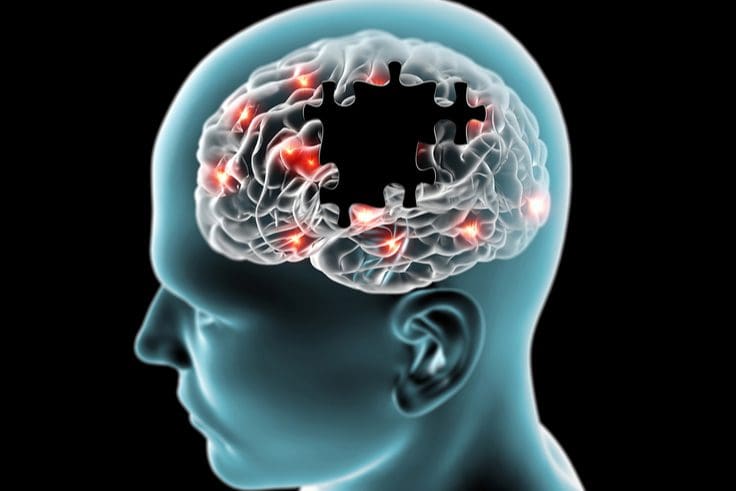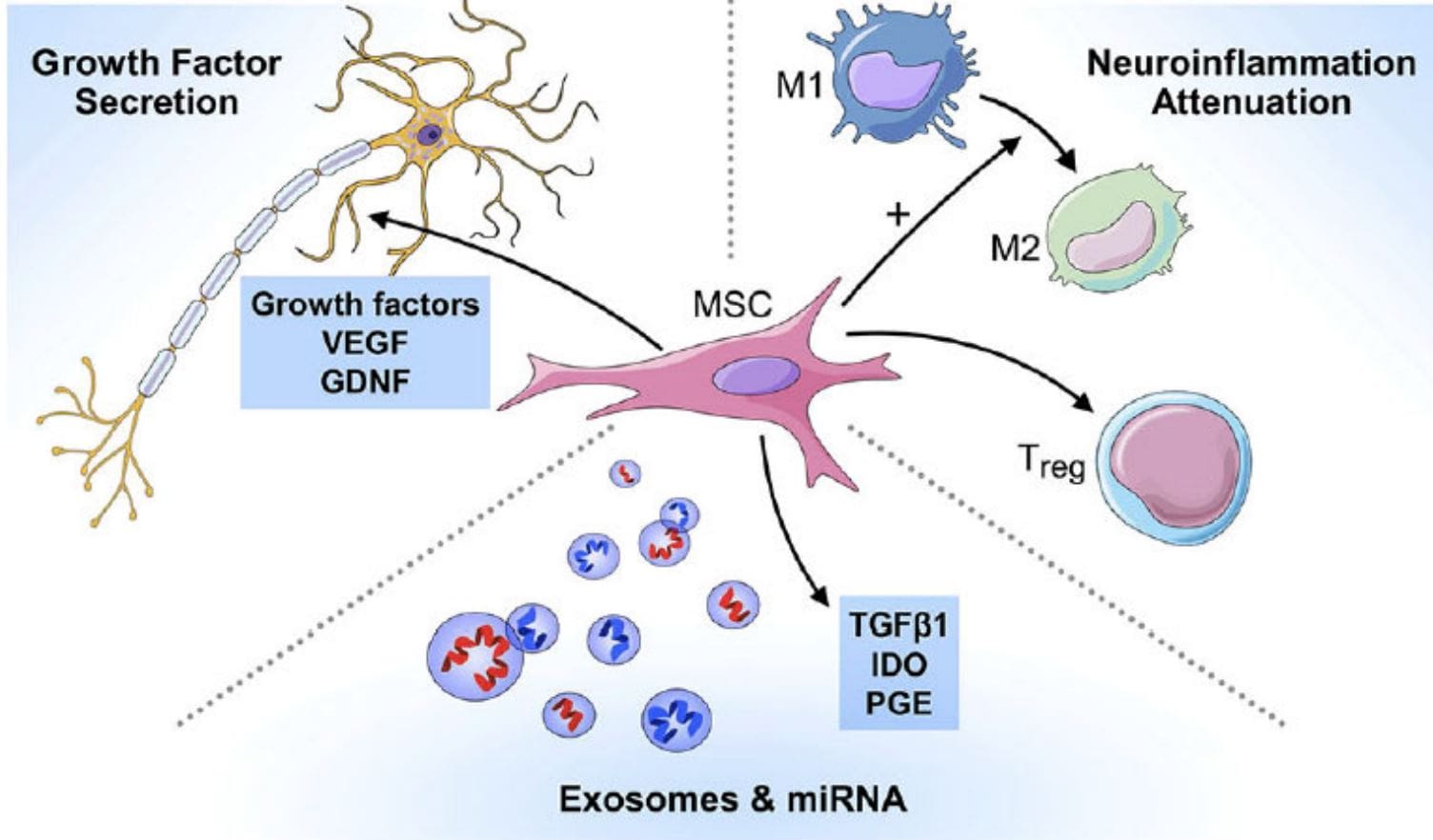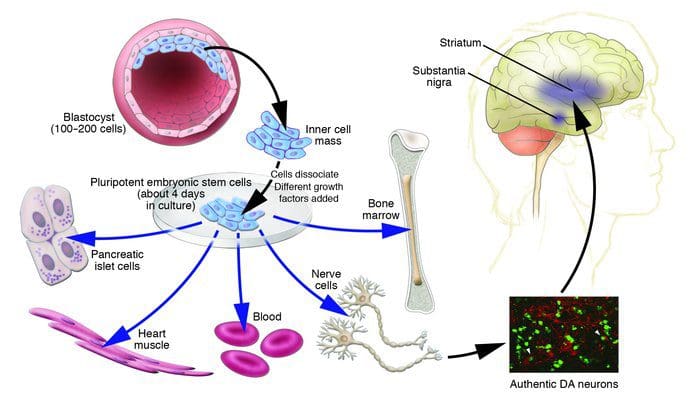Table of Contents
Introduction
The brain’s primary function in the central nervous system is to transport and transmit neuron signals all throughout the entire body. These neuron signals help the body, gut, immune, endocrine, and musculoskeletal systems do their jobs properly and send the information back to the brain. When there are disruptors that enter the body and attach to the neuron signals, they can disrupt the signals while traveling to the brain. When this happens, the brain will develop neurodegenerative disorders over time and cause havoc on the body making it dysfunctional. There are many therapeutic ways to dampen the effects of neurodegenerative disorders and one of them is through regenerative HCTP therapy. In this article, we will be taking a look at what is the pathology of neurodegenerative disorders and how regenerative HCTP therapy can affect neurodegenerative disorders. By referring patients to qualified and skilled providers who specialized in neurological services. To that end, and when appropriate, we advise our patients to refer to our associated medical providers based on their examination. We find that education is the key to asking valuable questions to our providers. Dr. Jimenez DC provides this information as an educational service only. Disclaimer
Can my insurance cover it? Yes, in case you are uncertain here is the link to all the insurance providers we cover. If you have any questions, please call Dr. Jimenez at 915-850-0900.
What Is Neurodegenerative Disease?
According to WHO global study, 8 out of 10 disorders in the 3 highest disability classes are neurologic problems. Research studies have found that neurodegenerative diseases occur when the brain’s nerve cells start to lose function and die over time. Neurodegenerative diseases can vary from the symptoms that a person is experiencing and can be numerous risk factors as well. All over the world, there are over 276 million people that are disabled due to neurodegenerative diseases since it is a progressive age disease. Other studies have found that neurodegenerative diseases can be frequently observed due to ischemic, metabolic, toxic, infectious, and traumatic insults of the brain. As many people start to live longer, many neurodegenerative diseases will begin to increase over time due to age.
The Pathology of Neurodegenerative Disease
The pathology of neurodegenerative diseases can be many factors that the body has gone through. Some of these factors that can cause neurodegenerative diseases to rise include:
- Reactive Oxygen Species (ROS) generation-causing chronic inflammation
- Proteasome complex impairment
- Mitochondrial function impairment
- Toxic protein aggregation
- Neurotoxic oligomers
- Genetic factors
Studies have found that with the pathology of neurodegenerative diseases is often characterized by a progressive loss of selectively vulnerable population of neurons in the brain. Now, this is different than regular disruptors due to the neuronal loss from metabolic or toxic disorders that a person may already have with their current lifestyle. Other factors that can cause the pathology of neurodegenerative diseases to develop over time are an unhealthy lifestyle like not getting enough exercise, eating nutritional foods, or not moving around a lot can cause the cognitive functions in the brain to shrink slowly and develop into cognitive dysfunction over time.
HCTP Therapy
HCTP (human cellular tissue products) or stem cells* are part of regenerative cellular treatment that both international and nationally affiliated clinics and distribution organizations use to help boost the body’s own natural healing process. HCTP can help individuals by repairing and regenerating damaged cells, diseased tissues, and organs back to their original state and function in the body. As more and upcoming research discusses the beneficial properties of HCTP, many individuals will begin on their wellness journey without being in chronic pain.
HCTP In Neurodegenerative Diseases
As stated earlier, HCTP or human cellular tissue products are used in both international and nationally affiliated clinics and distribution organizations that are specialized in this type of therapeutic treatment for individuals that are suffering from neurodegenerative diseases. Research studies have found that regenerative HCTP therapy has dampened the effects of neurodegenerative diseases from progressing further by regenerating the cellular structure and function of neurons in the brain. Some of the precise mechanisms of HCTP therapy for neurodegenerative diseases are still unknown but the beneficial factors that HCTP can offer include:
- Growth factor secretion
- Glial cell-derived neurotrophic factor (GDNF)
- Vascular endothelial growth factor (VEGF)
- Brain-derived neurotrophic factor (BDNF)
- Neuroinflammation attenuation
- Exosome and miRNA secretion
- Mitochondria donation
Other research studies have found that regenerative HCTP therapy has the capability to repair injured neuronal tissues in the brain. HCTP actually provides the existing healthy neurons and glial cells protection from any further damage that can harm the brain.
HCTP & Parkinson’s
Research studies have found that Parkinson’s disease is one of the most insidious neurodegenerative diseases worldwide. However, with the use of regenerative HCTP therapy, many of the damaged neuronal will be able to regenerate. HCTP can help with the secretion of neurotrophic growth factors while also modulating the immune system via direct cell-to-cell interactions and aid wound healing. Other research studies have found that regenerative HCTP can improve neuronal health by mitochondrial donation and affect DAergic neurons via prostaglandin E2 and its signaling pathway by releasing dopamine by depolarizing potassium channels and dampening the effects of Parkinson’s.
HCTP & Stroke
When individuals suffer from a stroke, their entire outlook on life will begin to plummet as they try to peice themselves back together. Research studies have found that since inflammation is part of a major pathological event that follows an ischemic stroke, regenerative HCTP therapy can help dampen the effects of chronic neuroinflammation to the brain. When inflammation starts to infiltrate into the brain that suffered from a stroke, it can cause a disruption to the blood-brain barrier, which causes the pro-inflammatory cytokines to be released and infiltrate the immune cells. Other research studies show that the ischemic tissues can help enhanced HCTP recruitment from peripheral blood and are associated with enhanced neurogenesis, angiogenesis, and synaptogenesis. Other beneficial results that HCTP can provide to minimized the effects of a stroke are:
- Inflammation attenuating
- Attenuated neuronal death by suppressing activated microglia
- Scar thickness reduction
- Autophagy enhancing
- Microenvironmental/metabolic profiles normalization
Conclusion
All in all, with many more research studies about the beneficial uses of HCTP, there are still ways to help dampen the effects of neurodegenerative diseases that many individuals can do. Either eating the right amount of foods that are filled with vitamins and minerals can help dampen inflammation in the body or exercising both mentally and physically can improve cognitive function by making the brain work on remembering what the person is doing can help the brain stay healthy and young. When neurodegenerative diseases start to affect the brain, it can cause symptoms of dementia, Alzheimer’s, or Parkinson’s’ to worsen over time. By incorporating therapeutic treatments like regenerative HCTP therapy into a person’s wellness journey can be beneficial to the individual.
References
Chang, Ying-Chao, et al. “Regenerative Therapy for Stroke.” Cell Transplantation, U.S. National Library of Medicine, 2007, pubmed.ncbi.nlm.nih.gov/17474298/.
Dugger, Brittany N, and Dennis W Dickson. “Pathology of Neurodegenerative Diseases.” Cold Spring Harbor Perspectives in Biology, Cold Spring Harbor Laboratory Press, 5 July 2017, www.ncbi.nlm.nih.gov/pmc/articles/PMC5495060/.
Díaz, Mariacruz L. “Regenerative Medicine: Could Parkinson’s Be the First Neurodegenerative Disease to Be Cured?” Future Science OA, Future Science Ltd, 10 Oct. 2019, www.ncbi.nlm.nih.gov/pmc/articles/PMC6787491/.
Professionals, NIEHS. “Neurodegenerative Diseases.” National Institute of Environmental Health Sciences, U.S. Department of Health and Human Services, 11 Feb. 2022, www.niehs.nih.gov/research/supported/health/neurodegenerative/index.cfm.
Przedborski, Serge, et al. “Neurodegeneration: What Is It and Where Are We?” The Journal of Clinical Investigation, American Society for Clinical Investigation, Jan. 2003, www.ncbi.nlm.nih.gov/pmc/articles/PMC151843/.
Rajkovic, Olivera, et al. “Regenerative Medicine Therapies for Targeting Neuroinflammation After Stroke.” Frontiers in Neurology, Frontiers Media S.A., 3 Sept. 2018, www.ncbi.nlm.nih.gov/pmc/articles/PMC6129611.
Sakthiswary, Rajalingham, and Azman Ali Raymond. “Stem Cell Therapy in Neurodegenerative Diseases: From Principles to Practice.” Neural Regeneration Research, Medknow Publications & Media Pvt Ltd, 15 Aug. 2012, www.ncbi.nlm.nih.gov/pmc/articles/PMC4302533/.
Sivandzade, Farzane, and Luca Cucullo. “Regenerative Stem Cell Therapy for Neurodegenerative Diseases: An Overview.” International Journal of Molecular Sciences, U.S. National Library of Medicine, 22 Feb. 2021, pubmed.ncbi.nlm.nih.gov/33671500/.
Yasuhara, Takao, et al. “Regenerative Medicine for Parkinson’s Disease.” Neurologia Medico-Chirurgica, The Japan Neurosurgical Society, 2015, www.ncbi.nlm.nih.gov/pmc/articles/PMC4533405.
Disclaimer
Post Disclaimer
Professional Scope of Practice *
The information herein on "Regenerative HCTP Therapy In Neurodegenerative Disorders" is not intended to replace a one-on-one relationship with a qualified health care professional or licensed physician and is not medical advice. We encourage you to make healthcare decisions based on your research and partnership with a qualified healthcare professional.
Blog Information & Scope Discussions
Our information scope is limited to Chiropractic, musculoskeletal, physical medicines, wellness, contributing etiological viscerosomatic disturbances within clinical presentations, associated somatovisceral reflex clinical dynamics, subluxation complexes, sensitive health issues, and/or functional medicine articles, topics, and discussions.
We provide and present clinical collaboration with specialists from various disciplines. Each specialist is governed by their professional scope of practice and their jurisdiction of licensure. We use functional health & wellness protocols to treat and support care for the injuries or disorders of the musculoskeletal system.
Our videos, posts, topics, subjects, and insights cover clinical matters, issues, and topics that relate to and directly or indirectly support our clinical scope of practice.*
Our office has reasonably attempted to provide supportive citations and has identified the relevant research study or studies supporting our posts. We provide copies of supporting research studies available to regulatory boards and the public upon request.
We understand that we cover matters that require an additional explanation of how it may assist in a particular care plan or treatment protocol; therefore, to further discuss the subject matter above, please feel free to ask Dr. Alex Jimenez, DC, or contact us at 915-850-0900.
We are here to help you and your family.
Blessings
Dr. Alex Jimenez DC, MSACP, RN*, CCST, IFMCP*, CIFM*, ATN*
email: coach@elpasofunctionalmedicine.com
Licensed as a Doctor of Chiropractic (DC) in Texas & New Mexico*
Texas DC License # TX5807, New Mexico DC License # NM-DC2182
Licensed as a Registered Nurse (RN*) in Florida
Florida License RN License # RN9617241 (Control No. 3558029)
License Compact Status: Multi-State License: Authorized to Practice in 40 States*
Presently Matriculated: ICHS: MSN* FNP (Family Nurse Practitioner Program)
Dr. Alex Jimenez DC, MSACP, RN* CIFM*, IFMCP*, ATN*, CCST
My Digital Business Card





